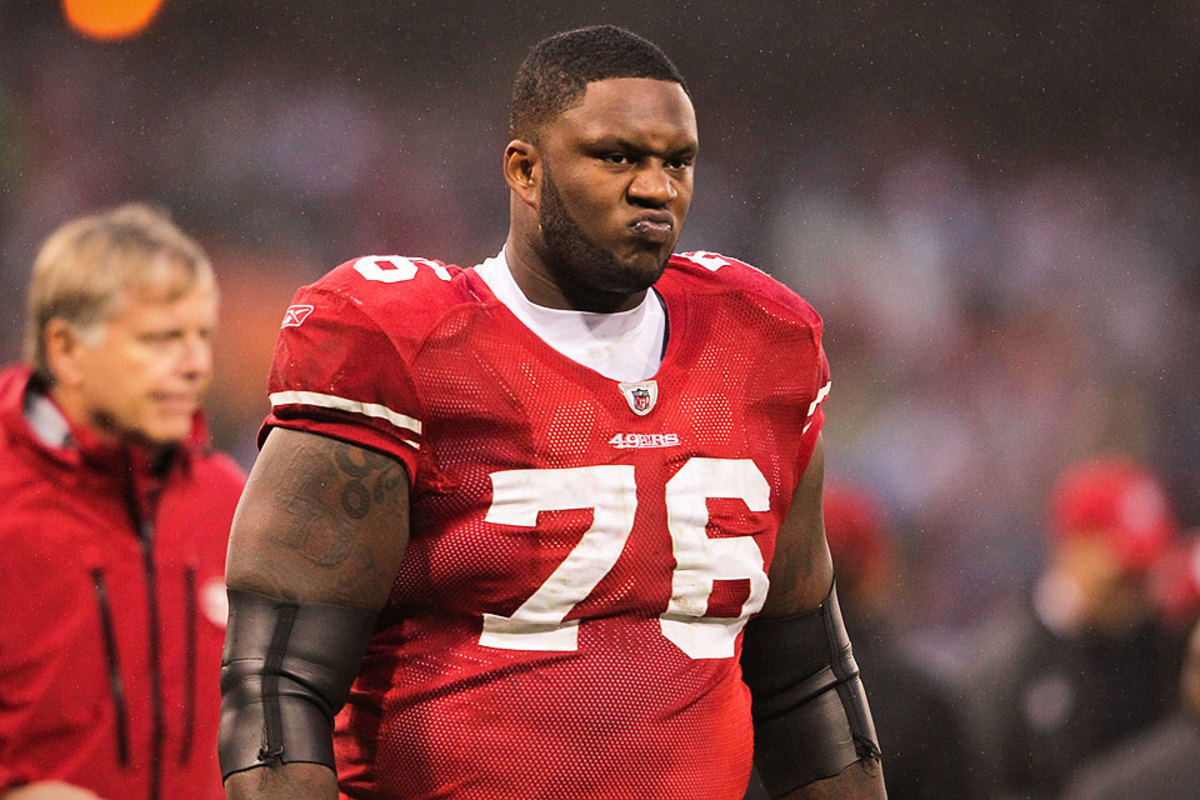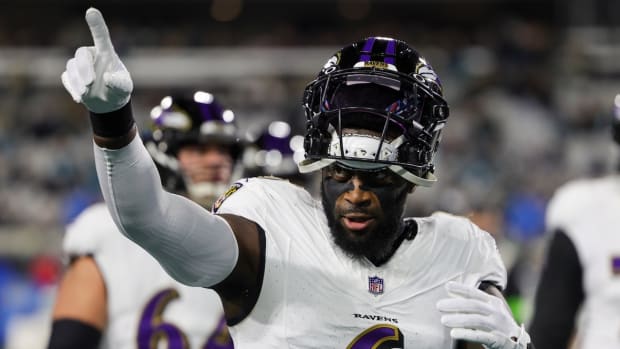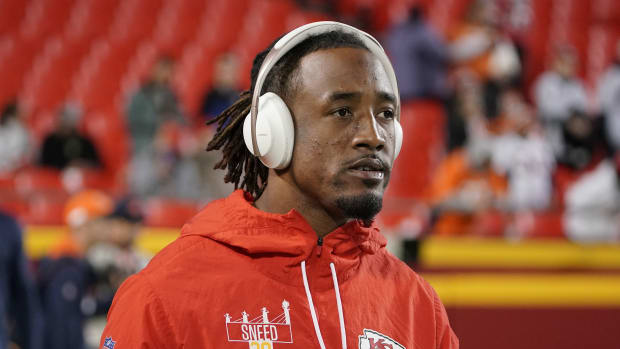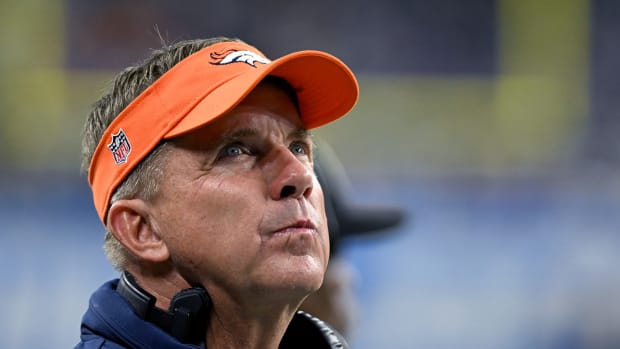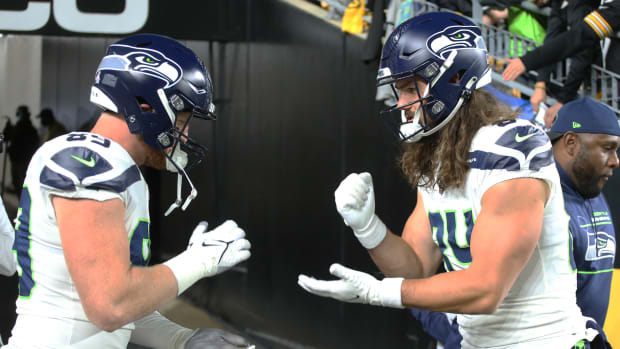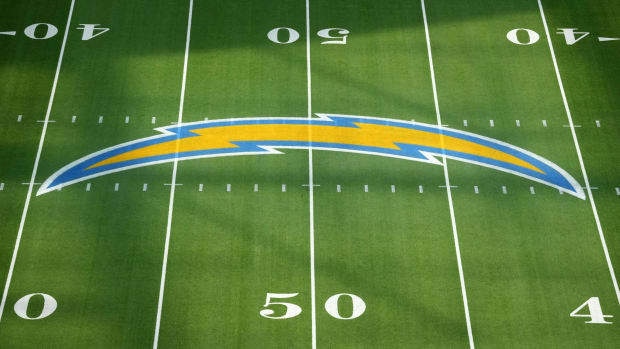The Conversation the NFL Does Not Want to Have
Someday there will probably be an interesting documentary made about all the 49ers players who retired this offseason. While unexpected departures have happened elsewhere—Jake Locker from the Titans and Jason Worilds from the Steelers—the number of eyebrow-raising retirements in San Francisco seems curious.
Perhaps it’s simply coincidence that Chris Borland, Patrick Willis, Justin Smith and Anthony Davis decided to walk away in quick succession, each citing individual circumstances. (It was reported on Tuesday that Eric Reid also has considered retiring if concussions become a further problem.) As much as some would like to connect the dots to possible dysfunction within the organization following the departure of Jim Harbaugh and the ascension of Jim Tomsula to head coach, we’ll likely have to wait a long time for that documentary to possibly reveal something more systemic at the root of these decisions.
The NFL must be hoping there is something unique going on with the 49ers. The retirement of younger players in their primes cannot yet be characterized as a trend, but it certainly can be seen as a concern from the league’s perspective. Let’s examine.
The older guys
The retirements of Justin Smith, 35, and Patrick Willis, 30, don’t set off the alarms that the departure of the younger players do. These two played “short area” positions—defensive end and linebacker—for 14 and eight seasons, respectively. They have been playing with house money relative to NFL career longevity, and now they are deciding to take their chips and get up from the table.
Goodbye, NFL
A beleaguered Patriots fan explains how the circus surrounding Deflategate has allowed him to see the NFL for what it is—and set him free. FULL STORY
But it’s still surprising to see Willis and Smith walking away. The vast majority of NFL players—no matter what age—don’t retire voluntarily; they are “retired” by teams that no longer need their services. Often when we see players retire a month or two into free agency, it’s because no team is willing to “un-retire” them so they can continue playing. Several teams, including the 49ers, would be happy to employ Willis and Smith. But rather than milking every last drop of football from their bodies (and minds), these two are moving on and seem content.
The younger guys
More intriguing are the retirements of Anthony Davis, 25, and Chris Borland, 24. In the business of football, these are the ages when players traditionally reach their physical and financial primes, moving toward the highest leverage point of their careers. And not only are they foregoing future riches, they acknowledge the 49ers’ contractual right to prorated bonuses and have agreed to forfeit those amounts. This truly shows the depth of their commitment to walk away from football (while negating the inevitable skeptics as to their reasoning).
Borland started doing significant research into brain trauma after suffering a “ding” in training camp, which, of course, was a head injury that persisted and sparked his inquiry. After thoughtful and informed study, he walked away from the NFL. Now Davis has made a similar decision, taking what he calls “a year or two away to allow his brain and body to heal.” While time will tell if Davis actually returns to play—his decision seems to be universally termed a retirement—his reasoning sounds similar to that of Borland’s. He has forecast the cumulative impact of football regarding his future health and, at least for the time being, has opted to stop playing.
In my dealings with players as a former agent, a former team executive and now a media analyst, I have always stressed two tenets to keep in mind: 1) to focus not on how much money you make, but rather how much money you keep; and 2) to treat the NFL not as a career but as a head start to a career. I have always told players that their peers in their college graduating class will be years ahead of them in their career paths when they leave football and enter “civilian life”; they need to use the contacts and recognition that they gain from the NFL to their post-NFL advantage. Davis and Borland have realized, at very young ages, that there is more to life than football.
Bigger issue
The Next 32
The MMQB sought out the guidance of 24 respected football minds—agents, coaches, scouts, plugged-in reporters and front office executives—to compile a list of those who might become NFL head coaches. FULL STORY
The idea of “preemptive retirement” was unheard a couple of months ago. Now Borland and Davis—along with Locker—have stop playing at age 25 or younger. Going forward, with only more knowledge and more resources becoming available about football’s long-term impact on players’ health, it’s hard to believe there won’t be more of these preemptive (and largely asymptomatic) retirements. Again, I am not suggesting a mass exodus from the NFL, but there may be a handful of these every year. And that has to be a concern for the league.
The NFL has settled a massive concussion litigation involving thousands of retired players (it has received final approval, although there are lingering appeals). The settlement, which should cost each owner the relatively minimal amount of approximately $25 million (with some covered by insurance), avoided billions of dollars of exposure, contains no admission of liability, and allows the NFL to claim that all former players are now being taken care of to some degree. However, when players in the prime of their careers decide the risk is not worth the reward, that is an entirely different conversation, one the NFL does not want to have.
Business is booming in the NFL. The most recent franchise sale, the Buffalo Bills, went for a staggering $1.4 billion; broadcast contracts are at record levels; and a team-friendly CBA is in place for five more years. The league has continued to prosper through scandals involving locker room bullying, domestic violence, crises in credibility, perceived hubris, and protracted investigations of the current Super Bowl champion (Spygate and Deflategate). As unique as some of those problems have been, the NFL can handle those threats; they are part of doing business.
Preemptive and asymptomatic retirements of young and ascending players, however, pose an unanticipated threat to the NFL’s dominance.
This is something to watch. Stay tuned.
PARTING THOUGHT
A quick note on the NFL shutting down participation by Tony Romo and other players in a fantasy football convention in Las Vegas…
The league’s problem with Romo and the other players was not the association with fantasy football, but rather a casino. I get it: gambling strikes at the heart of integrity and can potentially influence the product. No one wants that. However, the NFL embraces fantasy football on several levels—including its media platforms—and has no problem with point spreads being part of the conversation. The time is coming for the NFL to adjust its thinking toward gambling.
The NFL notes its longstanding policy that former players may associate with a casino, but current ones cannot. That restriction, however, doesn’t apply to teams. As I know from my time with the Packers, the team spends the night before home games at a hotel adjoining the Oneida Casino (Oneida Nation is a Gate Sponsor at Lambeau Field). The Saints are spending part of their second consecutive training camp— now joined by the Patriots for part of the time—at the luxurious Greenbrier Resort, home to a bustling casino. And yesterday, the Lions announced a new partnership with MGM.
The fact that ownership can do business with casinos and players cannot participate in events held at casinos seems antiquated. As NBA commissioner Adam Silver has done, perhaps it is time for a more enlightened look at the issue.
Follow The MMQB on Facebook, Twitter and Instagram.
[widget widget_name="SI Newsletter Widget”]
































